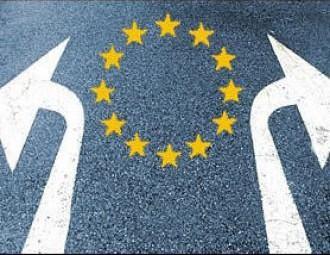Uladzimir Matskevich: Belarus at the EaP Summit represented demagogy and diversions

Uladzimir Matskevich, the head of the Board of the International Consortium “EuroBelarus”, sums up the results of the Eastern Partnership Summit, which recently took place in Vilnius.
- Vilnius Summit was intriguing only in relation to the Ukraine’s Association Agreement with the EU, or rather the decision of the Ukrainian government not to sign this agreement, - noted Uladzimir Matskevich in the talk with the EuroBelarus Information Service. – The pressure from Russia, which was a decisive factor in this decision, was but obvious.
Matskevich believes that it was obvious that Viktor Yanukovich was not going to sign anything: “In Vilnius he took the decision of the government as his cover, and, actually, called Europe for the three-sided talks with Russia”.
- Whereas Russia’s participation wasn’t planned a priori. Vice versa, by default post-Soviet countries were meant to lead independent policy in relation to Europe. There are certain disappointments regarding it; thus, a number of European politicians at the Summit voiced doubts about Russia being Europe’s strategic partner. It became obvious that Russia has always been interfering in the international affairs of the post-Soviet countries.
Uladzimir Matskevich mentioned that the reaction of the Ukrainian civil society took him by surprise.
- It seemed that Ukrainian society was rather concerned with domestic problems, yet the powerful actions of pro-European part of Ukrainian civil society has demonstrated that Ukraine’s foreign policy also matters. People are ready to fight for pro-European views vigorously. This situation ruined the balance of three Ukrainian elites: pro-Western Lviv, pragmatic Donetsk (with pro-Russian views) and centrist Kiev. If this balance is finally ruined, centrist-oriented tendencies are likely to begin in Ukraine, which will cause the most serious internal political crisis. If Yanukovich accepts the resignation of this cabinet, he will be able to turn back to the issue of Association Agreement with the EU, which will rebalance elites’ power and take advantage of the current political situation on the eve of elections. Despite being difficult, the situation is rich on opportunities; the question is who and with what intentions will be able to use it.
As to the apparently unexpected Belarus’ initiation to start Belarus-Europe visa facilitation process, this step of the official Minsk was quite predictable, reasons Uladzimir Matskevich.
- It is no surprise. Andrei Savinykh, Spokesman for the Ministry for Foreign Affairs of Belarus, mentioned it before, reproving Europe about the expensive 60-euro visa costs. The accusations are absolutely groundless, as Europe has been offering Belarus visa facilitation if several conditions are fulfilled. The statement made by Uladzimir Makei was all about demagogy and diversions from the most urgent problems of the Eastern Partnership. If we think about the so-called three «false choices», they only look false in the eyes of the Belarusan regime, because Belarus doesn’t enter into normal negotiation process with Europe. EU neither denies independent actions of all the countries-members of the EaP nor dictates its own will. Eastern Partnership program doesn’t presuppose automatic membership in the EU; it is about the choice of each country. Moreover, Europe offers a number of integration instruments, none of which presuppose political control or political pressure on EaP countries. Improving state administration, which would reduce costs on cooperation between EU-EaP governments, is at stake. These three choices are rather connected with false ides of the Belarusan regime, as any ideas, even the most sensible ones, can look false for narrow-minded people.
-
03.01
-
07.10
-
22.09
-
17.08
-
12.08
-
30.09








































